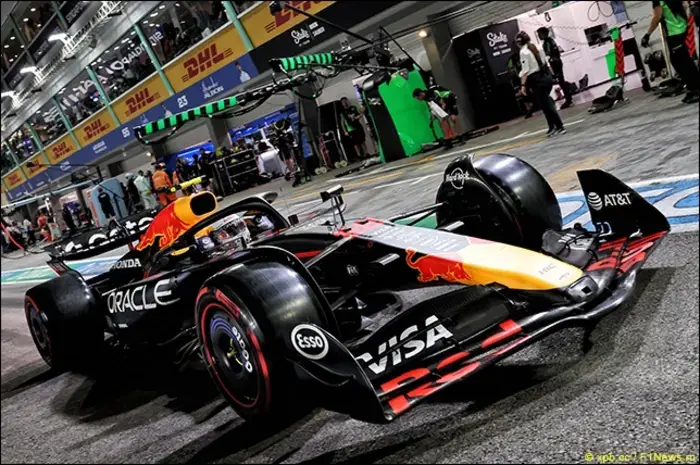
According to JD Power data, the leading brand in one segment boasts an impressive 67 percent loyalty rate. JD Power’s recent study reveals which brands enjoy the highest customer loyalty. Porsche leads the premium car segment, while Toyota ranks at the top of the mainstream car category. Ford trucks hold a loyalty rate of 66.6%, significantly higher than the industry average of only 49%. Attracting customers presents merely one challenge for automakers. A more significant and crucial task lies in retaining those customers, encouraging them to return when they decide to change vehicles, influenced by their trust in the brand and the perceived value and quality of the engineering that supports it. This can be a struggle for some companies, while others excel in this aspect, as highlighted by a new study. JD Power's annual Automotive Brand Loyalty Study, released this week, underscores the brands that seem to have customers tethered with elastic bands. Which Brands Keep Drivers Coming Back? The study categorizes vehicles into segments, showcasing a broad array of winners from domestic, Asian, and European brands. All of these brands share loyalty rates that significantly exceed the industry average of just 49%. Despite Porsche facing declining sales in China, where local automakers are gaining traction, its customer base in the US remains loyal. The study states that Porsche has a loyalty rating of 58.2 percent, leading the premium car segment and outpacing second-place Mercedes, which scored 49.7 percent. Luxury Versus Everyday Leaders In the premium SUV category, Lexus secured the top slot with a loyalty rate of 57.4 percent, surpassing BMW, which registered 54 percent. However, neither brand could rival Toyota's loyalty score of 62 percent in the mass market car segment, making even Porsche's customers appear less committed. JD Power Automotive Brand Loyalty Study Honda recorded a loyalty rate of 55.5 percent in the car category but excelled in the mainstream SUV segment with its own rate of 62 percent. Subaru followed closely with an impressive 60.6 percent. Ford's Loyal Customers One brand stands out with a loyalty rate that seems reminiscent of automakers operating in Eastern Europe prior to the fall of the wall. This brand is Ford, which dominated the truck category with a remarkable 66.6 percent loyalty rate, surpassing Toyota, which came in second at 61.2 percent. JD Power highlights that brand loyalty often decreases when customers transition to different segments. It’s likely that Ford’s success can be attributed to the fact that its F-Series customers are creatures of habit, committing to their F-150s for life.
Статистика квалификационных выступлений гонщиков, упорядоченная по средней позиции в итоговом протоколе без учёта последующих штрафов.
Гонщик
Команда
Средняя
Лучший
Худший
1 сессия
2 сессия
3 сессия
Счёт
О.Пиастри
McLaren
2,56
1
9
18
18
18
10 - 8
М.Ферстаппен
Red Bull
3,11
1
8
18
18
18
18 - 0
Л.Норрис
McLaren
3,44
1
10
18
18
18
8 - 10
Д.Расселл
Mercedes
4,39
1
14
18
18
17
16 - 2
Ш.Леклер
Ferrari
5,5
1
11
18
18
17
13 - 5
Л.Хэмилтон
Ferrari
7,89
4
16
18
17
13
5 - 13
К.Антонелли
Mercedes
8,61
3
18
18
16
12
2 - 16
А.Хаджар
Racing Bulls
9,72
4
16
18
17
11
13 - 5
Ф.Алонсо
Aston Martin
10,72
5
19
18
16
9
18 - 0
К.Сайнс
Williams
11,33
2
19
18
15
7
10 - 8
Ю.Цунода
RB/RBR
11,53
5
20
17
14
8
1 - 17
А.Элбон
Williams
11,89
5
20
18
15
7
8 - 10
Л.Лоусон
RBR/RB
13,22
3
20
18
11
6
4 - 14
П.Гасли
Alpine
13,67
5
20
18
10
7
12 - 5
Г.Бортолето
Sauber
14
7
20
18
10
4
11 - 7
О.Берман
Haas F1
14,83
8
20
18
11
3
10 - 8
Э.Окон
Haas F1
15,35
8
19
17
8
2
8 - 10
Д.Дуэн
Alpine
15,5
11
19
6
3
0
1 - 5
Н.Хюлкенберг
Sauber
15,72
11
20
18
6
0
7 - 11
Л.Стролл
Aston Martin
16
6
20
18
6
2
0 - 18
Ф.Колапинто
Alpine
16,58
12
20
12
4
0
Другие статьи
 Лео Турини: Это не может продолжаться дальше.
После Гран-при Сингапура общее настроение фанатов Ferrari охарактеризовал Лео Турини, опытный итальянский гоночный журналист...
Лео Турини: Это не может продолжаться дальше.
После Гран-при Сингапура общее настроение фанатов Ferrari охарактеризовал Лео Турини, опытный итальянский гоночный журналист...
 DHL Награда за самый быстрый пит-стоп: Red Bull с лучшим пит-стопом
В Сингапуре механики Red Bull Racing совершили самый быстрый пит-стоп, обслужив машину Юки Цуноды за 2.05 секунды.
DHL Награда за самый быстрый пит-стоп: Red Bull с лучшим пит-стопом
В Сингапуре механики Red Bull Racing совершили самый быстрый пит-стоп, обслужив машину Юки Цуноды за 2.05 секунды.
 Статистика предыдущих Гран-при: Гонки и участники.
Статистика результатов пилотов на прошедших Гран-при...
Статистика предыдущих Гран-при: Гонки и участники.
Статистика результатов пилотов на прошедших Гран-при...
According to JD Power data, the leading brand in one segment boasts an impressive 67 percent loyalty rate. JD Power’s recent study reveals which brands enjoy the highest customer loyalty. Porsche leads the premium car segment, while Toyota ranks at the top of the mainstream car category. Ford trucks hold a loyalty rate of 66.6%, significantly higher than the industry average of only 49%. Attracting customers presents merely one challenge for automakers. A more significant and crucial task lies in retaining those customers, encouraging them to return when they decide to change vehicles, influenced by their trust in the brand and the perceived value and quality of the engineering that supports it. This can be a struggle for some companies, while others excel in this aspect, as highlighted by a new study. JD Power's annual Automotive Brand Loyalty Study, released this week, underscores the brands that seem to have customers tethered with elastic bands. Which Brands Keep Drivers Coming Back? The study categorizes vehicles into segments, showcasing a broad array of winners from domestic, Asian, and European brands. All of these brands share loyalty rates that significantly exceed the industry average of just 49%. Despite Porsche facing declining sales in China, where local automakers are gaining traction, its customer base in the US remains loyal. The study states that Porsche has a loyalty rating of 58.2 percent, leading the premium car segment and outpacing second-place Mercedes, which scored 49.7 percent. Luxury Versus Everyday Leaders In the premium SUV category, Lexus secured the top slot with a loyalty rate of 57.4 percent, surpassing BMW, which registered 54 percent. However, neither brand could rival Toyota's loyalty score of 62 percent in the mass market car segment, making even Porsche's customers appear less committed. JD Power Automotive Brand Loyalty Study Honda recorded a loyalty rate of 55.5 percent in the car category but excelled in the mainstream SUV segment with its own rate of 62 percent. Subaru followed closely with an impressive 60.6 percent. Ford's Loyal Customers One brand stands out with a loyalty rate that seems reminiscent of automakers operating in Eastern Europe prior to the fall of the wall. This brand is Ford, which dominated the truck category with a remarkable 66.6 percent loyalty rate, surpassing Toyota, which came in second at 61.2 percent. JD Power highlights that brand loyalty often decreases when customers transition to different segments. It’s likely that Ford’s success can be attributed to the fact that its F-Series customers are creatures of habit, committing to their F-150s for life.
Статистика результатов гонщиков в квалификациях...
